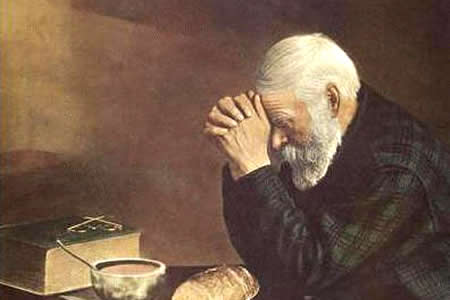[Today’s Christian Woman, June 24, 2015]
Q & A with editor Joy-Elizabeth Lawrence
• What draws people to this contemplative and traditional corporate and individual discipline?
I think they are looking for an anchor to reality that is outside their own personal experience and their own wisdom. Way back in the 60s churches began talking about being “relevant” and rearranging worship and worship space to attract contemporary people. This makes so much sense on the surface, but it backfires because it treats worshipers like customers and seeks to please them, and the “customers” sense that they are being fed something that has been carefully adjusted to please them. In a restaurant, that’s fine; but in worship you are trying to ground yourself in something bigger and wiser than yourself, and to have the proprietor just keep shoving a mirror in your hands is not helpful. Flattering for a while, but not what you need when you’re searching and yearning for something greater and more stable than yourself.
Ancient, continuous traditions cut right across the artificiality of modern days and link us to a profound reality, one that has been tested and proved by previous generations. It’s not just getting the theological ideas right, but entering a practice that has been shown to transform; it’s been proved in the examples of saints in earlier centuries. That gives hope. In our age we can drown in flattery and sensory indulgence. The ancient ways connect us with something strong that has no concern whatsoever about pleasing us.
• What does form prayer (as opposed to extemporaneous prayer) do in the life of believers and seekers?
Form prayer creates a structure in the day, like the steel skeleton of a building, that supports continuous extemporaneous prayer. St. Paul said in four different letters that we should pray without ceasing; he must have thought it was important, and he must have thought it was possible. Experience soon shows that this does not and cannot mean talking to God all the time, but rather developing a continuous sense of his presence, which blooms naturally into speaking inwardly to him whenever you need or want to.
It takes practice to create that inner attention and awareness, just as you’d practice piano scales. Stopping for form prayers at set times of the day begin to construct that skeleton. I think that it is the stopping and turning toward God, just as much as the prayers themselves, that does this.
Form prayer also teaches theology, linking concepts together that you might not have grasped on your own. It embeds in your mind turns of phrases that bloom to awareness at moments of need, and remind you of God’s presence and the united strength of the Body of Christ which prays these prayers. Perhaps most important for our age, it teaches humility. The contemporary strategy of marketing faith to seekers by flattering them goes down sweetly, but in times of trouble it is distressing to discover that you have no spiritual father/mother except yourself, or a leader who seems to have no more wisdom than you do. Form prayers teach us that God is vastly greater than we are, and that we receive from him love and forgiveness that we can never deserve. They lead us to call ourselves “sinners,” which is the only kind of person Christ can save. Developing humility is the first step of the spiritual life, and for the Christians in earlier centuries such humility was instinctive. When we pray the prayers they wrote, we begin to acquire their wisdom.
• How have you observed form prayer as formative for extemporaneous prayer (or, perhaps, formative in other ways.)
I think I included this in the first question. But I can add that personally it began when I decided to stop for prayer 3 times a day, morning, noon, and night, and pray some very short prayers for the time of day. At first I would forget to do some of them, and this bothered me, so I became more careful about keeping track of the time and noticing when it was time to pray. Every time I looked to see if it was time to pray, I inwardly remembered God and looked toward him, a fleeting wordless prayer. Those many connections began to link to each other, as I developed a sense of God’s continuous presence. Of course he is always present; what I needed was to become aware of it.

















